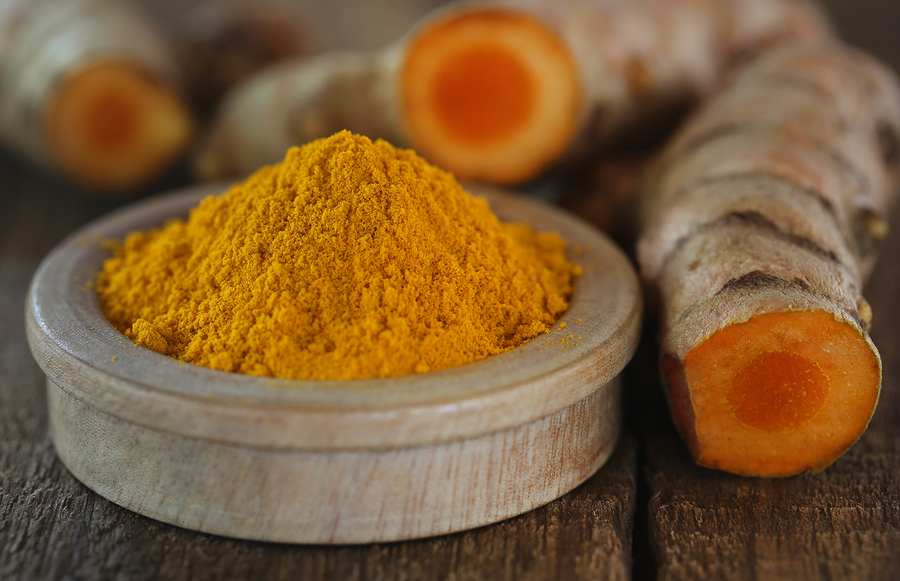- Make It Yourself Lavender Heart-Shaped Bath Bombs!
- 20 Things You Never Knew About “Down There”
- 12 Best Foods For Those Suffering From Arthritis Pain
- 12 Personal Hygiene Mistakes Almost Everyone Makes (Mom Never Told You About #4!)
- 15 Medicinal Plants And Herbs From The Cherokee People
- 12 Mind-Blowing Benefits Of Drinking Coconut Water During Pregnancy
- 12 Outstanding Winter Foods That Won’t Fatten You Up Like A Christmas Turkey
Proof That Turmeric Can Prevent Dementia

Photo credit: bigstock.com
Every day, there is news regarding dementia and Alzheimer’s disease, but are they one and the same? The symptoms appear to be similar, but what sets them apart from each other? Dementia, according to the National Institute on Aging, is a disorder of the brain that affects a person’s communication skills and how they carry out their daily activities. Alzheimer’s is a condition that impacts a person’s thoughts, memory, and speech. Even though people may develop both of these conditions as they age, they are not something you have to experience as you get older.
What causes dementia?
There are more than 47.5 million people suffering from dementia. Dementia is brought on by other diseases, including Huntington’s, Alzheimer’s, and Parkinson’s. Other ways you can get dementia include a stroke, vascular issues, excessive drug use, HIV, and depression.
Symptoms of dementia start out slow and begin with what may appear to be regular episodes of memory loss. The disease progresses from forgetting locations that the sufferer is familiar with to being unable to recognize people’s names and faces. Those affected begin to ask the same questions over and over again, appear to be more and more confused, and have trouble handling their own personal hygiene until they are no longer able to take care of themselves.
How do you get Alzheimer’s?
More than 5 million people have Alzheimer’s in the United States, according to the National Institutes of Health. The disease causes damage to the brain and progresses slowly at first. There is no known cure, and the cause of Alzheimer’s has not been determined.
In addition to some of the symptoms of dementia, those suffering from Alzheimer’s exhibit poor judgment, are depressed, and have trouble remembering recent events and conversations.
There are medications to treat both conditions, with new breakthroughs occurring on a regular basis. It has been determined that turmeric, a spice used in curry, can actually cut down on the chances of developing dementia.
Continue to Page 2

Photo credit: bigstock.com
How does turmeric reduce the chances of developing dementia?
The benefits of turmeric on other medical issues have been shown. Turmeric consists of curcumin, which has been effective in relieving cirrhosis of the liver, Parkinson’s, certain types of cancer, and dementia.
Curcumin has been found to block certain proteins that destroy neurons when they join together.
Studies that prove the effectiveness of turmeric on dementia
Listed below are all of the current clinical trials and studies that have documented the ways turmeric has helped to reduce the progression of dementia.
- The Telegraph reported the results of a test conducted at Edith Cowan University in Perth. A group of 96 people from 40 to 90 years of age were divided into two groups. For a period of one year, half the people received curcumin, while the other group received a placebo. Those who received the placebo experienced a decline within six months; those who received the curcumin showed no sign of a decline.
- The number of people who are over 65 and have Alzheimer’s in Pennsylvania is 19 out of 1000. In India, the rate is 3 out of 1000, making it the area with the lowest number of cases of Alzheimer’s in the world.
- A study that was published in the September 2014 issue of Stem Cell Research & Therapy showed the effect of aromatic turmerone in regenerating stem cells. It was determined that not only did turmeric protect those who have Alzheimer’s, but it was able to reverse some of the damage caused by the disease by helping to regrow new brain cells.
- While curcumin has been administered in a pill form, the latest breakthrough that was documented in the Journal of Alzheimer’s Disease, in January of 2015, showed that the process of using an aerosol version of curcumin was better able to reach the brain when it was inhaled. The aerosol version allowed the curcumin to reach the brain, attach itself to the beta-amyloid plaques, and destroy them. These plaques are what further the damages of Alzheimer’s disease.
- A small study of three severe cases of Alzheimer’s found that after a 12-week treatment, one patient rose five points on the Mini-Mental State Exam, from 12/30 to 17/30. Within one year of the treatment, the two other patients recognized family members.
- In 2008, researchers found that turmeric was able to improve the memory of a patient suffering from some of the worst symptoms of dementia. These findings were documented in the Annals of Indian Academy of Neurology. Just one gram of turmeric was administered to patients for a period of three months and the result was “remarkable improvements.”
READ ALSO: Dementia and Vitamin D Deficiency: Is There a Link?
While studies relating to the effects of turmeric on dementia continue, it wouldn’t hurt to consult your doctor to see if it is something you or a loved one suffering from dementia could benefit from.
Refernces:
































